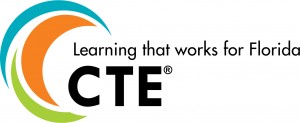 Over the past year, Advance CTE has worked with state and national partners to modernize The National Career ClustersⓇ Framework (The Framework). Through kitchen cabinets, stakeholder engagement sessions, and town halls with our members, we collected a ton of great information about the purpose and the users of The Framework, its value, and where it no longer fits with the modern and future world of work. We recognize that The Framework has lived its useful life.
Over the past year, Advance CTE has worked with state and national partners to modernize The National Career ClustersⓇ Framework (The Framework). Through kitchen cabinets, stakeholder engagement sessions, and town halls with our members, we collected a ton of great information about the purpose and the users of The Framework, its value, and where it no longer fits with the modern and future world of work. We recognize that The Framework has lived its useful life.
Now, more than ever, we need support from our community to help develop a new, modernized Framework. We know that we don’t have all the answers about the potential of a new Framework, so Advance CTE has opened an online crowdsourcing portal to collect ideas from you. This undertaking is no small task, and the strength of The Framework has always been the state-led, collaborative approach to build and update it. The more ideas we can collect, the stronger the end product will become. Here are some top tips to help you when filling out the portal.
- You don’t have to go it alone: Are you an educator looking for a class project or an employee of a non-profit company in the CTE and career readiness space? What about an employer who hires CTE students? Collaborate with learners, your staff and peers to work together to submit an idea to the idea challenges.
- Complete one or all of the idea challenges: We know you have a busy schedule. However many idea challenges you choose to submit to, we welcome your input. Do not feel like you need to submit a response to all of them. Please pick the challenges that you connect with most and submit your strongest ideas. If you and your team are deep thinkers with a lot of feedback, please feel free to submit ideas for each of the challenges as well!
- Keep equity and access in mind: We are looking for ideas that center learners and are equity and access minded. Make sure to keep that lens when completing your submission.
- Be BOLD! and future-focused: We are looking for bold and innovative ideas! Think of the world of education and work in 2041 and how this framework may reflect that world. No idea is too ‘out there.’ The bolder the better!
- Unsure if you are the right person to submit an idea? If you are reading this blog, we want you to submit an idea. We are looking for ideas and perspectives from the full range of those impacted by education and the workforce including educators, learners, school counselors, school administrators, state leaders, employers, industry leaders, non-profit organizations, for-profit companies, economists, researchers, marketers, data professionals and more!
Submit your ideas today! The portal will be open until May 7. You can also help us get the word out about this initiative by using this promotional toolkit. Share the initiative with your networks through social media or inclusion in your newsletter.
Once the portal has closed, we will aggregate and tweak top ideas through facilitated workshops with a group of state- and national- level experts, with the end goal of two prototypes for a new, modernized Framework. After the development of these prototypes, we will again ask for feedback from the CTE and workforce communities to help us refine and hone a final version of a new Framework. Currently, Advance CTE is looking toward July 2024 for a rollout of this final version. Please visit advancingtheframework.org or the Advancing the Framework page on our website for updates or more information about the timeline and process. Please contact policy associate Dan Hinderliter ([email protected]) if you have any questions or require assistance with the portal.
Dan Hinderliter, Policy Associate





 All across the U.S., exciting opportunities are happening for students in Career Technical Education (CTE) programs that represent a host of
All across the U.S., exciting opportunities are happening for students in Career Technical Education (CTE) programs that represent a host of